Pakistan in Economic Purgatory: The Way Out Depends on Human Development
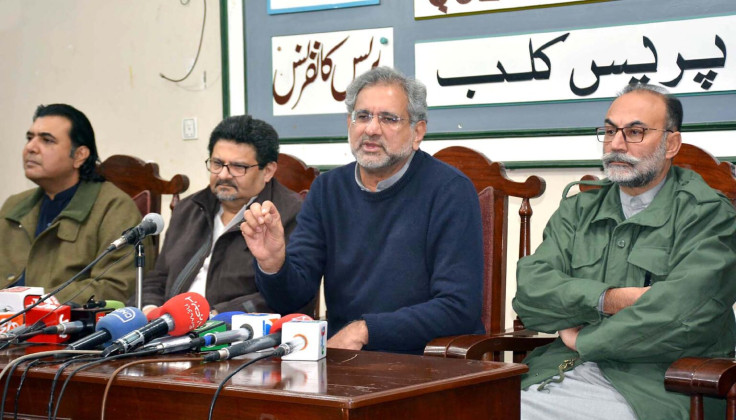
When you exit the Benazir Bhutto International Airport in Islamabad and go down the Srinagar Highway towards the city proper, you encounter shiny billboards offering homes in one of the various new property developments cropping up around the area.
The most intriguing ones to me are those belonging to, let's call it, Paradise View Town. One shows off its central mosque whose outer porticoes appear to find inspiration in the famed striped horse-shoe-shaped arches of Cordoba. Another shows a marina backed by supersized versions of Venice's canal-front palazzos.
This journey is an unwitting microcosm of the forces at work in the maelstrom that is perhaps Pakistan's worst economic crisis to date - a view shared by many, including Miftah Ismail, the CEO of Ismail Industries, a snack food manufacturer, and two-time former Finance Minister of Pakistan.
Yet Pakistan has been in the headlines most recently for a different problem: political turmoil, as the latest targeting of opposition politicians, reaches a head. Many are finally asking when the political infighting and victimisation will give way to the important questions and how will the nation stabilise the economic fortunes of 220 million.
Pakistan entered its first IMF programme in 1958, 11 years after its independence from British-ruled India. It has since gone back to the lender another 22 times. Yet you wouldn't know it based on that car ride.
In late February, Pakistan's foreign reserves stood at USD3.8 billion (or GBP3.17 billion), worth approximately 3 weeks of imports - before getting a partial lifeline through Chinese loans totalling USD 1.2 billion (GBP 1 billion). The country saw its largest single-day devaluation in January 2023. At the time of writing, the Pakistani Rupee is trading at 281 rupees to the dollar (or 343 to the pound).
The country is due to repay USD 70 billion (58 billion pounds) in debt by 2025. It is in desperate need of the final tranche of USD 1.1 Billion (GBP 0.9 Billion) of the IMF bailout package agreed upon in 2019. Yet until recently, the incumbent government, like those before it, has flouted the IMF's conditions, going to the lender of last resort in even more dire straits than before. Whilst a final agreement for the disbursement of funds is still pending, Pakistan's long-term ally, Saudi Arabia, has refused to bail out the country yet again - sparking fears of a default.
Inflation was at 31.5 per cent in February 2023.
Add to the mix a summer of biblical floods in 2022, and what you get is an unprecedented economic crisis.
Export or Perish: Focusing on the Wrong Things
Mr Ismail spoke to International Business Times UK in an exclusive interview from his Dubai office. "People don't want to come to Pakistan," he said. "How can you do business when clients don't want to set foot in the country?"
He talks about the perennial law and order challenges - both perceived and real - that hamper inflow of FDI (foreign direct investment) into Pakistan. The name of the Islamabad airport itself is a grim reminder of this fact - it is dedicated to the former prime minister, Benazir Bhutto - assassinated in a terrorist attack on a political rally in 2007.
These days, one cannot fly directly from Islamabad to the European mainland. Mr Ismail recalled that it was not always so.
"When I was growing up in Karachi, many European and East Asian airlines came through. Now, hardly any do - and even those who fly in, avoid accommodating their crews overnight in Pakistan due to safety concerns."
Mr Ismail is on a mission, along with other like-minded individuals, including former prime minister Shahid Khaqan Abbasi. The two-time former Finance Minister of Pakistan is hosting a nationwide circuit of seminars on the theme "Pakistan Reimagined". He warns that unless Pakistan can grow its exports, and create a sustainable inflow of foreign exchange, the country will be perennially mired in debt.
Furthermore, he lambasted the poor governance in the country, which he opines is now the worst in the world - "Nothing gets done in Pakistan" - and implored the various players to rise above narrow self-interest.
The relevant players are many - warring political factions, an ineffectual judiciary and a meddlesome military.
A minimum agreeable economic agenda transcending party lines - a "Charter of the Economy" - is the need of the hour, he says. Without it, he warns we risk becoming a failed state.
His point is illustrated by the disdain shown by two successive governments for the IMF's conditions - before predictably going back to the lender last-minute, after failing to implement structural, long-term solutions - a cycle which perpetuates dependence on foreign aid.
To make matters worse, the government has been clamping down on opposition parties - slapping a slew of cases on former Prime Minister Imran Khan, whose supporters are currently clashing in the streets with law enforcement - in a move that appears to have the support of Pakistan's powerful non-elected institutions.
For his part, when Mr Khan was in government, many an opposition politician saw the inside of a jail cell.
So, what about the country at large? Mr Ismail and others are asking.
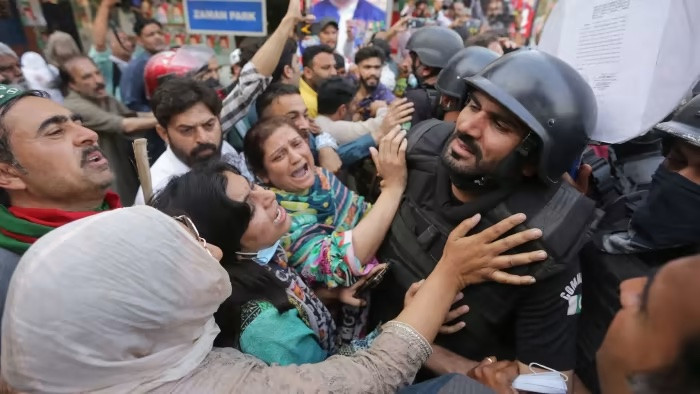
Mr Ismail's stance is a brave one in Pakistan, where his own party is in power currently - and there are, as ever, serious curbs on the freedom of expression.
As perhaps evident from his rallying cry of export-led growth, a successful export-oriented business is a rare breed in Pakistan. In this poor and very unequal country, the economic "insiders" prefer to park their cash in real estate.
After all, if you don't like the Venice-themed offering of Park View City, you can opt for, amongst many others, a well-known competitor that boasts an Eiffel Tower replica on its grounds.
Dubious and culturally non-sequitur architectural choices aside, policy distortions encourage investment in this sector that brings hardly any benefit to the country at large. Investors flock to take advantage of the low tax rates and poor record-keeping.
Considering the high return on investments in real estate - 24.3 per cent annual increase as of April 2022 - one wonders why anyone with cash to spare would bother with challenging endeavours such as industry.
A World Bank mission visited Pakistan late last year and wondered the same thing. Who are the economic actors brazen enough to invest in, say, manufacturing?
(Hardly Enough Of) Made in Pakistan
Enter one Musadaq Zulqarnain. Mr Zulqarnain is Chairman of Interloop, an apparel manufacturer that posted annual sales of just under 91 billion Pakistani Rupees (GBP 270 million) in the financial year 2021-22, making it the largest textile manufacturer listed on the Pakistan Stock Exchange.
Interloop was founded in 1992 and has become an unlikely success story. The latest World Bank memorandum on Pakistan laments the conditions that make such successes so unlikely.
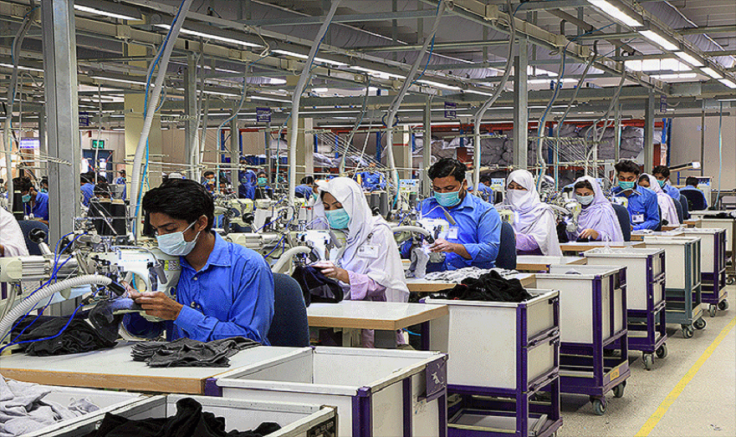
Whilst the world embraces a global value chain (GVC) revolution by reducing barriers to trade, Pakistan has doubled down on import tariffs. According to the World Bank, import duties have increased from 15 per cent on average in 2010 to 21.3 per cent in 2020. This means higher costs of importing capital equipment required for domestic manufacturing.
Protectionist tariffs also mean domestic producers eschew competitive technologies and standards - leaving Pakistan unable to keep up with global competitors.
Mr Zulqarnain rattled off a sobering list of barriers to entry for anyone wishing to pursue productive industry or services in Pakistan, stating, "Power tariffs are too high and not rationalised. Recovery (of bills) is poor nationwide, and subsidies to lower-income households are paid for through increased tariffs on the industry."
He added, "Infrastructure is very poor. There are so many power outages that you need multiple energy standbys - including gas and diesel generators. You even have to lay the roads into your factory yourself!"
With such daunting investment requirements, the Chairman of Interloop asked, "Even if you do everything by the book and do not intend to use real estate to hide ill-gotten gains, why wouldn't you park your money there?"
Mr Zulqarnain noted that these conditions also constrain FDI flow into the country. "Efficiency-seeking FDI is non-existent in Pakistan. The bulk of foreign investment is market-seeking. These are your Unilevers, your Nestles" - firms that come to strike gold in the consumer market of the world's fifth-most populous nation.
Interloop's Chairman went on to say, "In turn, that just worsens our balance of payments crisis. For instance, car manufacturing plants in the country are largely low-value-added assembly units. The parts are all imported in.
"When a foreign company, for instance, Toyota, to take the car manufacturing example, sets up a plant here, we should insist they commit 20-30 per cent production for export. People are happy to direct productive investment into volatile countries - Cambodia and Egypt come to mind - but not Pakistan."
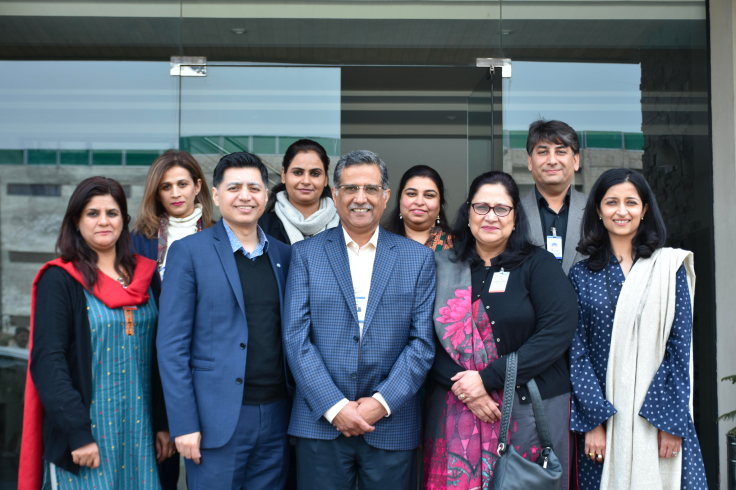
Further expanding on why that is, Mr Zulqarnain, whose firm has twice been recognised in the last 10 years by client Adidas as a high performer in People Practices, says, "In Pakistan, we don't invest in our people."
It is a point Miftah Ismail has also been at pains to make. In Quetta on 22nd January, he told the press, "Half of the school-age children below the age of 16 do not go to school in Pakistan - to say nothing of those who are in low-quality schools that are failing them."
(Un)Productive Capacity: An Economy is "Not Just an Abstract Set of Rules"
Both men are joined in this dismal view of human capital development by Dr Atif Mian - a Princeton economist who is also a Pakistani. In a recent talk with the Brookings Institute, where he was joined by Miftah Ismail, he honed in on the concept of "productive capacity".
"In an economy, the sum should be greater than its parts. People have ways of connecting to form institutions like firms. This works when people with knowledge, who have the highest productivity, are willing to come to your country and work," said Dr Mian.
Dr Mian pointed out the sobering reality of persecution of minority-faith groups, and even women, in the country - a problem rarely analysed in light of its economic impacts.
"I know a well-educated Hindu man from Sindh. He wanted to set up a medical facility in the village where he grew up, but he was a Hindu...(eventually because of discriminatory barriers) he set up his facility outside of Pakistan."
Dr Mian himself is from the persecuted minority Ahmadi Muslim community, so knows something of this experience.
He wrapped up his observations by saying, "If there is a bright light in Pakistan, it is what women have achieved in the last 20 years - but what are we doing to them?... We don't have nearly enough women in positions of power, even though their rates of education are superior (to those of men)."
The Superwomen of Pakistan
If the economic headwinds are challenging for big ships to navigate, spare a thought for smaller establishments. In Pakistan, as in the rest of the world, SMEs form the backbone of the economy.
According to the State Bank of Pakistan, as of March 2022, SMEs contributed 40 per cent of GDP and 78 per cent of non-agriculture-sector employment.
On a visit to Numra Makeup Studio in Lahore's affluent Defence neighbourhood, one is greeted by soft-spoken staff who usher you into the brightly-lit space.
It is run by beauty entrepreneur Numra Waqas, who said, "All of my inputs are imported." She went on to say, "We are one of the biggest purchasers of L'Oréal in Lahore; hair colour, shampoos, etc."
Illustrating the impact of runaway inflation on businesses, she said, "for our most popular Kerastase treatment, we charged 4,200 rupees (GBP 13) four months ago. To keep up with increasing wholesale prices, I changed the price to 6,000 rupees (GBP 18); and right now, it is 8,000 rupees (GBP 24)."
"I just printed new menu cards after the last increase by wholesalers, and they are already out-of-date."
In response to when we asked her why the business is so reliant on imports, Waqas said, "The quality of local products is not up to scratch. The local hair colour formulations, for instance, do not give proper coverage. Colour tends to be hard to remove or re-do."
It drives home the point Miftah Ismail and Musadaq Zulqarnain have made to me about Pakistan's lack of productivity and export competitiveness.
Numra also reflects on the poor governance Mr Ismail has been lamenting. She said she closed her business during a 3-month covid lockdown - paying employees in full. Despite temporarily shutting down her business, she still had to pay her lease in full because no one in government had the foresight to ask landlords to share the economic burden.
Without a favourable policy environment - that desperately needed "Charter of Economy" Mr Ismail emphasises - it is hard to see how things will change.
Everyday Life for the 99 per cent
Ruksar Yaseen is that brave breed of Pakistani woman: one who goes out every day in a very male-dominated society to earn a living.
Ruksar has been working at Numra Makeup Studio for six years. She lives in a small rental property far from the glamour of Defence, with her parents, four sisters and a brother.

Her three youngest sisters go to school, whilst the rest are employed. Her mother was recently fired from her job as a domestic cook, for taking a personal day - an indication of the woeful state of Pakistan's labour relations - just another strand of the country's insufficient human capital development.
When discussing how bad the situation has gotten Yaseen said, "We used to have parathas every day. Now, the Ghee used to cook them is so expensive, we manage them just a few times a week. We used to have chicken every second day, now it is down to once a week."
We further spoke about her daily commuting process, and she told us she normally takes the Metro public service. "It is very safe for women," Yaseen explained. "There are surveillance cameras everywhere. It has been the same, affordable rate for all the years I've used it - 20 rupees (6 pence) one way.
"These days, the route is temporarily closed one way, and we have to take the Qingqi (motorcycle taxi). The Qingqi rate has recently increased in line with fuel prices. Right now it is 40 rupees (12 pence) for me."
"A Broken Nervous System"
The Lahore Metro she talks about is a rare public sector success in Pakistan. It carries 245,000 people a day. Yet when it first opened, it faced myriad accusations - of corruption, of worker deaths during construction, of endangering Unesco heritage sites.
Whilst calls for better oversight may have merit, it sounds strange that a belated transit system for one of the world's biggest metropolises should have been met with such hostility.
The Lahore Metro was first proposed in 1991. It is a measure of the political gridlock in Pakistan that did not start life until 2013. It is an illustration of what Dr Atif Mian calls a "broken nervous system".
Dr Atif Mian believes the decision-making process is broken. "We need to fix that at the top. People need to understand their responsibilities," he said.
Speaking on the makeup of the government, Dr Mian told Brookings, "When you are selecting a team that will be at the helm of affairs, don't choose your relatives, choose competent people."
On this point, Mr Ismail added, "Even when you have competent people in a room, it's difficult. In 2014, when we came into power, we were confronted by a year-long opposition sit-in which made it impossible to get things done. The government is always looking over its shoulder."
The added implication made by both Mr Ismail and Dr Mian is that interference by the powerful military does not help.
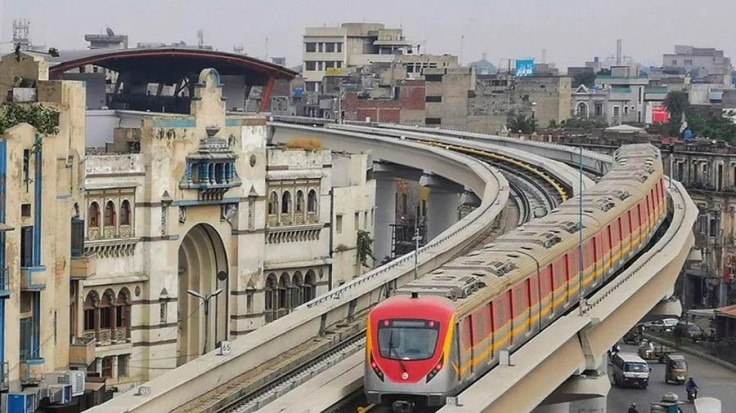
Mr Zulqarnain pointed to some obvious reform contenders: "We need to digitize sales and tax records for small traders (shops) and real estate - so that non-payment of tax can be addressed. We've done it for the Benazir Income Support Programme (a social protection scheme); why not for business transactions?"
Mr Ismail pointed to other low-hanging fruit: "Nothing stops us from mechanising our agriculture to increase yields across the board - cotton, wheat, you name it." Currently, Pakistan is importing many basic food crops as domestic production is not keeping pace.
Another thorny issue is the NFC (National Finance Commission) award, through which the federation dispenses significant funds to the provinces. Unfortunately, this discourages efficient tax collection at the provincial level and encourages abuse of funds by local representatives.
Whilst Mr Zulqarnain acknowledged the political pitfalls of taking on the NFC issue, he added, "we should at least address inefficient subsidies - such as to the fertiliser industry - that are hampering, rather than boosting, productivity."
Speaking of thorny issues, Mr Ismail pointed out that in the aftermath of the war in Afghanistan, there is untold economic loss along a very porous Pak-Afghan border.
The Way Forward is Clear. Or is It?
"You don't need a Princeton economist to solve these problems," Mr Ismail stated in his conversation with Brookings.
"Well then I should just be quiet," Mr Mian quipped in return, leading both men to chuckle.
The prescriptions are right in front of us - whether it is increasing tax collection, investing in the mechanisation of agriculture, incentivising industry or de-incentivising unproductive enterprises such as real estate.
The trouble is there is no one either willing or able to implement them, whether due to limited competence or just the sheer ungovernable nature of the country; no one able to take on the untaxed or unduly privileged sectors of the economy.
That does not bode well for Pakistan.
When the Poet of the East, Muhammad Iqbal visited Cordoba, it moved him to write one of his most famous compositions, the eponymous Qartaba, after the original Arabic moniker of the mosque.
In the praise of the structure of the mosque itself, he wrote "terī binā pāʾedār, tere sutūñ be-shumār". Which translates roughly to "your foundation firm, your pillars innumerable".
As the first person to articulate the idea of Pakistan in what was then 1930s-British-ruled India, Iqbal would have wanted it to mimic the strength of the foundation he so admired in Cordoba. It is unlikely that the kind of emulation he had in mind was the unchecked proliferation of construction that is the Park View Cities of Pakistan, rather than a strong foundation of human capital.
© Copyright IBTimes 2025. All rights reserved.






















